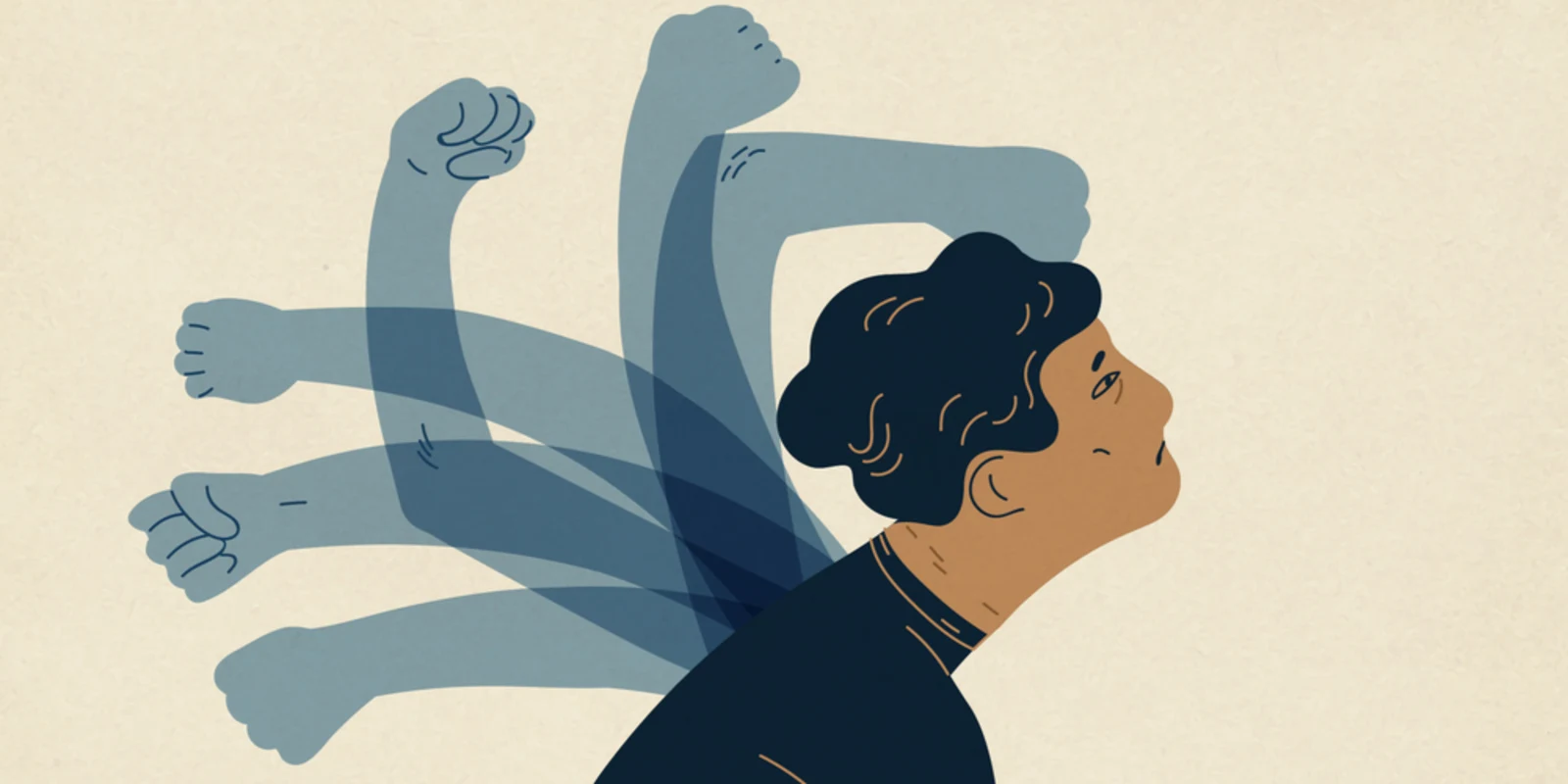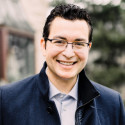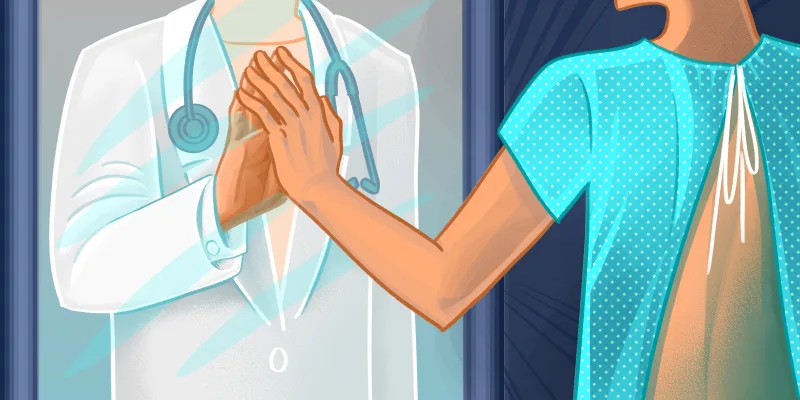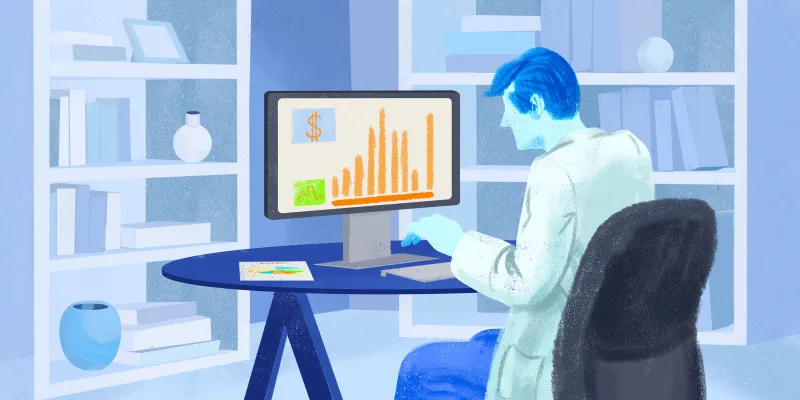Much emphasis has been placed on combating the alarming rates of burnout among physicians. Addressing physician burnout is timely considering its negative impact on patient care, physician health, and the overall health care system.
However, less emphasis has been placed on addressing the high rates of anxiety that plague physicians. According to a systematic review and meta-analysis, 25.8% of physicians suffer from anxiety.
Anxiety is a universal human experience and plays an important function. Its purpose is to protect you from future negative outcomes. A spike in anxiety can be helpful when preparing for an upcoming board exam, job interview, or challenging clinical case.
The problem occurs when the increase in anxiety is chronic or excessive. Among physicians, it can manifest as being short with loved ones and colleagues, ruminating about work during time off, having a hard time winding down before bed, and/or feeling constantly tense and even dreading the drive into work. In such instances, anxiety can take a toll on one’s physical and mental health, and even increase mortality risk.
Notably, anxiety also makes physicians more vulnerable to burnout. In a study analyzing survey responses from over 1,200 health care professionals, those with higher levels of anxiety were three times more likely to report burnout compared to those who experienced low levels of anxiety.
The high prevalence of anxiety among physicians makes sense when you consider the emotional nature of our work. As healers, we have a front row seat to human suffering. On a daily basis, we devote ourselves to helping people who are ill, stressed, traumatized, and even dying. For many of us, it would be impossible not to be emotionally impacted by the cumulative impact of these encounters.
In addition, countless systemic factors make it exponentially harder to serve our patients at our fullest capacity. Increased administrative, clinical, and documentation requirements; endless prior authorizations; mounting educational debt; persisting gender and racial inequalities; and a fear of being sued put additional pressures on overstretched physicians.
Such systemic barriers interfere with the patient-physician encounter, which only makes physicians feel more helpless. In general, we are Type A, hardworking, altruistic, self-reliant perfectionists who will move heaven and earth to achieve a desired outcome, and for good reason. Such traits helped us meet the requirements for admission into medical school and endure the sacrifices of becoming physicians.
They also make us vulnerable to anxiety, and other emotional difficulties.
Take perfectionism as an example. Medicine reinforces this trait because even the slightest error when prescribing a medication or making a surgical incision can have catastrophic outcomes for the patient. In many clinical scenarios, “good enough” is simply not an acceptable outcome.
Though useful for practicing medicine, perfectionism is a recipe for suffering. It is associated with a host of mental health conditions, including anxiety. I have worked with physicians whose perfectionism had also spilled into their home life as they fixated on having spotless kitchen counters and perfectly manicured lawns. Their pursuit of perfection had engulfed every aspect of their lives, which stifled their relationships with loved ones.
The same can be said about altruism. Though caring about the welfare of others is a catalyst for prosocial behavior, and a noble reason to pursue a career in medicine, altruism is associated with worse mental health outcomes when altruistic norms exist but the altruistic behavior cannot occur. Consider how often this discrepancy occurs in medicine. Trying to help people with terminal illness, treatment resistant conditions, or in dire psychosocial situations can trigger feelings of helplessness and inadequacy because these scenarios highlight the limits of our ability to help.
To top it all off, life continues outside the bubble of medicine. We are mere mortals who cannot escape life’s inevitable tragedies. We too have to cope with loss, grief, health concerns, family stressors, the lingering effects of the pandemic, and every other imaginable challenge while caring for our patients.
When we consider the emotional toll of practicing medicine, the systemic barriers interfering with patient care and our personality structure, it should be no surprise that physicians suffer from high rates of anxiety. Providing access to high quality, confidential mental health care, without worrying about punishment from state licensing boards, is an essential first step for addressing anxiety, and other emotional difficulties, among physicians. We need a safe space to process the experience of being a physician. Such access does not absolve hospitals and governing bodies from their responsibility to address the systemic factors exacerbating physician suffering.
In the meantime, it is imperative for physicians to be equipped with healthy coping skills for anxiety management. Conceptualizing anxiety as a biopsychosocial phenomenon can help you comb through countless available coping skills. Below, I offer a few evidence-based tips you can incorporate in your daily life.
1) Eat well and exercise.
From a biological perspective, minimize caffeine intake in the afternoons, as it can interfere with anxiety and sleep. Avoid alcohol use and stay active. Evidence shows that exercise reduces anxiety. Remember that some exercise is better than none. Even a 15-minute brisk walk in the evening beats spending the time entirely on the couch.
2) Be good enough, not perfect.
From a psychological perspective, remember to be fair to yourself. As perfectionists, we tend to be hypercritical of ourselves for failing to meet lofty expectations. Failure is a universal human experience that can teach us valuable lessons. Being perfect implies there is no further room for personal growth. This is not the case for any of us.
3) Say “no.”
Finally, from a social standpoint, give yourself permission to set boundaries as you navigate competing work, family, and social obligations. Challenge feelings of guilt that interfere with boundary setting. Remember that saying “no” is unavoidable. If you never say “no” to others, then you end up saying “no” to yourself and the people who matter most to you.
These interventions are not a panacea for addressing anxiety among physicians. However, they can be a helpful compass as you navigate being a physician in the modern world.
How does anxiety manifest in your own life as a clinician? Share in the comments.
Dimitrios Tsatiris, MD is a practicing board certified psychiatrist whose work focuses on the intersection of mental health and achievement. He is a TEDx speaker who speaks and writes on the topic. You can find him on Twitter and Instagram @drdimitrios. You can visit his website to learn more.
Image by GoodStudio / Shutterstock






